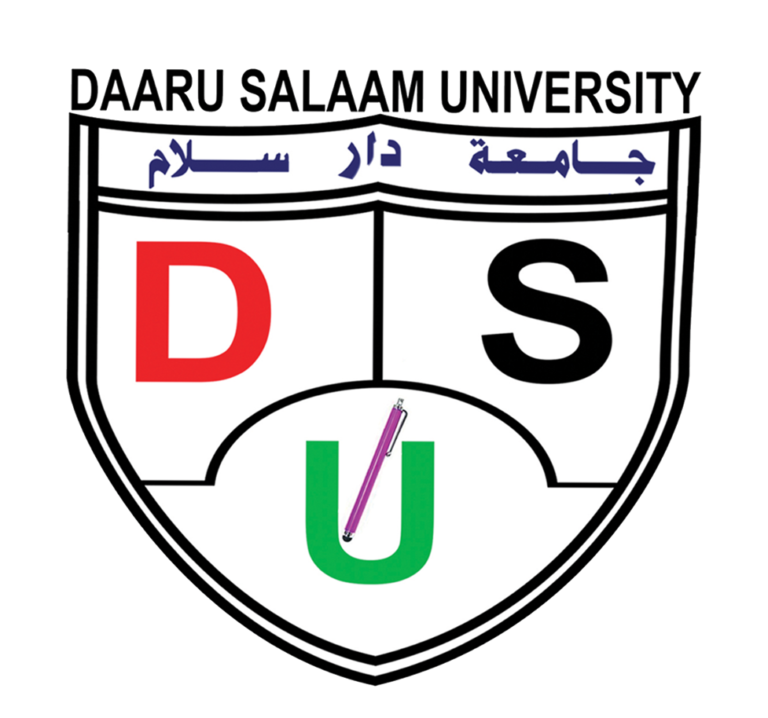Faculty of Engineering
Departments

Department of Computer Engineering

Department of Civil Engineering

Department of Electrical Engineering

Department of Mechanical Engineering

Engr. #######
Dean, Faculty of Engineering
Dean's Message
Welcome to the Faculty of Engineering at Daaru Salaam University (DSU) in Mogadishu, Somalia.
As Dean, I have the honor of leading our esteemed faculty dedicated to pushing the boundaries of engineering through exceptional teaching, research, and service. Our commitment extends far beyond the confines of the classroom, as we strive to empower students with the knowledge, skills, and ethical principles necessary for success in their profession and in shaping the future of engineering. At DSU, we are deeply passionate about fostering a dynamic learning environment where innovation, problem-solving, and collaboration flourish. Whether you are embarking on your engineering journey as a student or joining our faculty as a respected educator and researcher, I encourage you to embrace the opportunities for personal and professional growth within our vibrant academic community.
Thank you for choosing DSU.
Program Description
Department of Civil Engineering
Overview
The Department of Civil Engineering at Daaru Salaam University is dedicated to shaping the future of infrastructure and the built environment. Our program is designed to inspire and equip students with the technical expertise, creativity, and problem-solving skills needed to design, construct, and maintain the world around us. From bridges and buildings to transportation systems and water resources, our students learn to tackle real-world challenges with innovation and sustainability in mind.
What We Aim to Achieve
Our mission is to produce highly skilled civil engineers who are not only technically proficient but also socially responsible. We aim to foster a deep understanding of engineering principles while encouraging students to think critically and creatively about how to improve the quality of life for communities. Sustainability, safety, and innovation are at the core of everything we do.
What You’ll Learn
Our comprehensive curriculum covers a wide range of topics, ensuring that students gain both theoretical knowledge and practical experience. You’ll study structural engineering, geotechnical engineering, transportation systems, water resources, and construction management. Through hands-on projects, laboratory work, and internships, you’ll learn how to apply engineering principles to real-world problems and develop solutions that are both efficient and sustainable.
Key Areas of Focus
- Structural Engineering – Learn to design and analyze structures like buildings, bridges, and towers.
- Geotechnical Engineering – Understand the behavior of soil and rock to ensure stable foundations for construction projects.
- Transportation Engineering – Explore the planning, design, and operation of transportation systems.
- Water Resources Engineering – Study the management and distribution of water for drinking, irrigation, and flood control.
- Construction Management – Gain skills in project planning, budgeting, and execution.
- Environmental Engineering – Learn how to minimize the environmental impact of construction projects.
- Sustainable Design – Focus on creating infrastructure that is eco-friendly and resilient.
What You’ll Gain
By the end of the program, you’ll have a strong foundation in civil engineering principles and practices. You’ll be able to design and analyze complex structures, manage construction projects, and develop sustainable solutions to engineering challenges. Beyond technical skills, you’ll also develop teamwork, communication, and leadership abilities that are essential for success in the field.
Where You Can Go
Graduates of our program are well-prepared for a variety of careers in the public and private sectors. You could work as a structural engineer, construction manager, transportation planner, or water resources engineer. You’ll also have the skills to pursue roles in project management, urban planning, or environmental consulting. Our alumni are making a difference in industries around the world, and we’re here to help you join them.
Our Facilities and Resources
Our department is
equipped with modern laboratories, including materials testing labs,
geotechnical labs, and hydraulic labs. Students also have access to advanced
software tools for design and analysis. Through internships, industry
partnerships, and research opportunities, you’ll gain valuable hands-on
experience that will set you apart in the job market.
How to Join Us
If you’re passionate about building a better future and ready to take on the
challenges of civil engineering, we invite you to apply. Admission requirements
include a strong background in mathematics and science, along with meeting the
university’s general criteria. Whether you’re applying for an undergraduate or
postgraduate program, we’re here to guide you through the process.
Why Choose Us?
At Daaru Salaam University, we believe in empowering our students to become
leaders in the field of civil engineering. Our faculty are experienced
professionals who are committed to your success, and our programs are designed
to prepare you for the demands of the industry. By choosing the Department of
Civil Engineering, you’re not just earning a degree – you’re building the
foundation for a rewarding career.
Join us and be part of
a community that’s shaping the future of infrastructure. Your journey starts
here!
DEPARTMENT OF ELECTRICAL AND TELECOMMUNICATION ENGINEERING
Overview
The Department of Electrical and Telecommunication Engineering at Daaru Salaam
University is at the forefront of innovation in the fields of electronics,
telecommunications, and power systems. Our program is designed to prepare
students for the challenges of a rapidly evolving technological landscape.
Whether you’re interested in designing communication networks, developing
renewable energy systems, or working on cutting-edge electronics, our
department offers the knowledge and skills you need to succeed.
What We Aim to Achieve
Our mission is to produce highly skilled engineers who can design, analyze, and
optimize electrical and telecommunication systems. We aim to foster a deep
understanding of engineering principles while encouraging creativity and innovation.
Our graduates are equipped to address global challenges, from improving
communication networks to developing sustainable energy solutions.
What You’ll Learn
Our curriculum covers a wide range of topics, ensuring that students gain both
theoretical knowledge and practical experience. You’ll study electrical
circuits, power systems, telecommunications, signal processing, and
electronics. Through hands-on projects, laboratory work, and internships,
you’ll learn how to apply engineering principles to real-world problems and
develop innovative solutions.
Key Areas of Focus
- Electrical Circuits and Systems –
Learn to design and analyze electrical circuits and systems.
- Power Systems –
Study the generation, transmission, and distribution of electrical power.
- Telecommunications –
Explore the design and operation of communication networks and systems.
- Signal Processing –
Understand how to analyze and manipulate signals for communication and
data processing.
- Electronics –
Gain expertise in designing and testing electronic devices and systems.
- Renewable Energy –
Learn about sustainable energy solutions like solar, wind, and hydropower.
- Embedded Systems –
Work on the integration of hardware and software for smart devices.
Program Objectives
By the end of the program, you’ll have a strong foundation in electrical and
telecommunication engineering principles and practices. You’ll be able to
design and analyze complex systems, develop innovative solutions, and work on
cutting-edge technologies. Beyond technical skills, you’ll also develop
problem-solving, teamwork, and communication abilities that are essential for
success in the field.
Career Opportunities
Graduates of our program are well-prepared for a variety of careers in
industries such as telecommunications, power generation, electronics, and
renewable energy. You could work as an electrical engineer, telecommunications
specialist, power systems analyst, or electronics designer. You’ll also have
the skills to pursue roles in research, development, or project management. Our
alumni are making a difference in industries around the world, and we’re here
to help you join them.
Our Facilities and
Resources
Our department is equipped with state-of-the-art laboratories, including
electronics labs, telecommunications labs, and power systems labs. Students
also have access to advanced software tools for simulation and design. Through
internships, industry partnerships, and research opportunities, you’ll gain
valuable hands-on experience that will set you apart in the job market.
How to Join Us
If you’re passionate about technology and ready to take on the challenges of
electrical and telecommunication engineering, we invite you to apply. Admission
requirements include a strong background in mathematics and science, along with
meeting the university’s general criteria. Whether you’re applying for an
undergraduate or postgraduate program, we’re here to guide you through the
process.
Why Choose Us?
At Daaru Salaam University, we believe in empowering our students to become
leaders in the field of electrical and telecommunication engineering. Our
faculty are experienced professionals who are committed to your success, and
our programs are designed to prepare you for the demands of the industry. By
choosing the Department of Electrical and Telecommunication Engineering, you’re
not just earning a degree – you’re preparing for a future full of
possibilities.
Join us and be part of
a community that’s shaping the future of technology. Your journey starts here!
